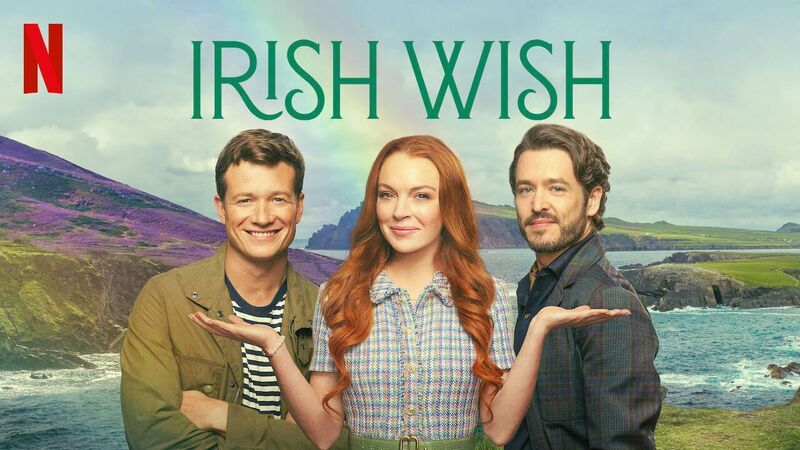Séamas O'Reilly: Every Irish character in Irish Wish has the wrong accent or nothing to say

Irish Wish: Every character is an uncanny, half-dimensional version of a trope you’ve seen elsewhere.
Netflix’s centres on book editor Maddie, played by Lindsay Lohan, who’s secretly in love with her star author – and hunky Irishman – Paul Kennedy.
Lovelorn in Ireland as she prepares to watch him marry her best friend Emma, she chances upon an uncanny meadow. There she is set upon by Dawn Bradfield, best known as Lovely Girl Imelda in , here playing a chaotic witch who hovers around rural Ireland granting wishes to visiting Americans for reasons unknown.









